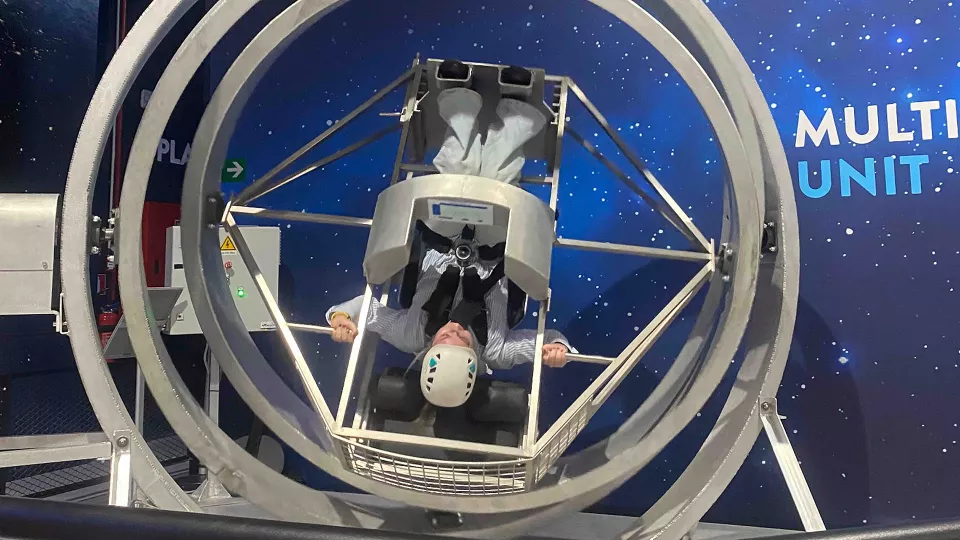
On the 18th of June I found myself in the village of Poix-Saint-Hubert Belgium. How did I get here you may ask? Well, about 15 minutes away from here the European Space Agency (ESA) Security and Education Centre resides. Here I began the ESA/ELGRA (European Low Gravity Research Association) Gravity-Related Research Summer School.
My journey to the ESA began early in the year when a now graduate of my course talked about his own experience in the programme. I knew I had to apply. The application process was simple and just after my exams I received an email inviting me to take a spot!
In Belgium, it was like being in an ESA bubble. I was surrounded by 29 other STEM students selected from a myriad of disciplines all over Europe, as well as esteemed professors who specified in the study of life and physical sciences.
On our first day, we visited the Euro Space Centre where we got the experience of training like an astronaut. From undergoing 4g in a human centrifuge to a simulated moonwalk, to visiting the ESA’s Redu Centre which monitors satellites 24 hours a day for telecommunications and navigation services, the activities were ‘out of this world.’
The rest of the week was spent in a lecture hall, getting lectures on many topics, such as astrobiology, space medicine, matter in space and more. The lectures were given by professors who focused on the effect of altered gravity conditions on their respective topics.
Then came the group project where we were tasked with creating our own altered gravity experiment. My teams’ project was entitled “An investigation of visual cortical excitability in altered gravity”. The title sounds daunting however it was intended to give information on if altered gravitational conditions induce frequent flashes or hallucinations in vision. This is paramount to the health and safety of astronauts, especially since we plan on sending more people into space in the future.
The teamwork continued for a second week remotely, concluding with a presentation in front of a selection of lecturers.
It is easy to tell from this article that I’m fascinated with space, this is what ignited my interest in physics, my field of study. I am currently a third year Applied Physics student, and from this experience my love of physics has only grown deeper. During this experience, I have learned how to implement a research project, manage a team, and I have delved deeper into topics which have always fascinated me.
I would recommend this opportunity to anyone in the STEM area. The learning material was excellent, I met with engaging lecturers, and this is without mentioning the students that I met. It was phenomenal to be immersed in a group of people with different backgrounds united by a common interest. Conservations over dinner raised new questions in my mind and forced me to rethink things which I had taken for granted before. I would recommend this summer school to everyone. As for applying, you don’t have anything to lose, just a once-in-a-lifetime experience to gain.
